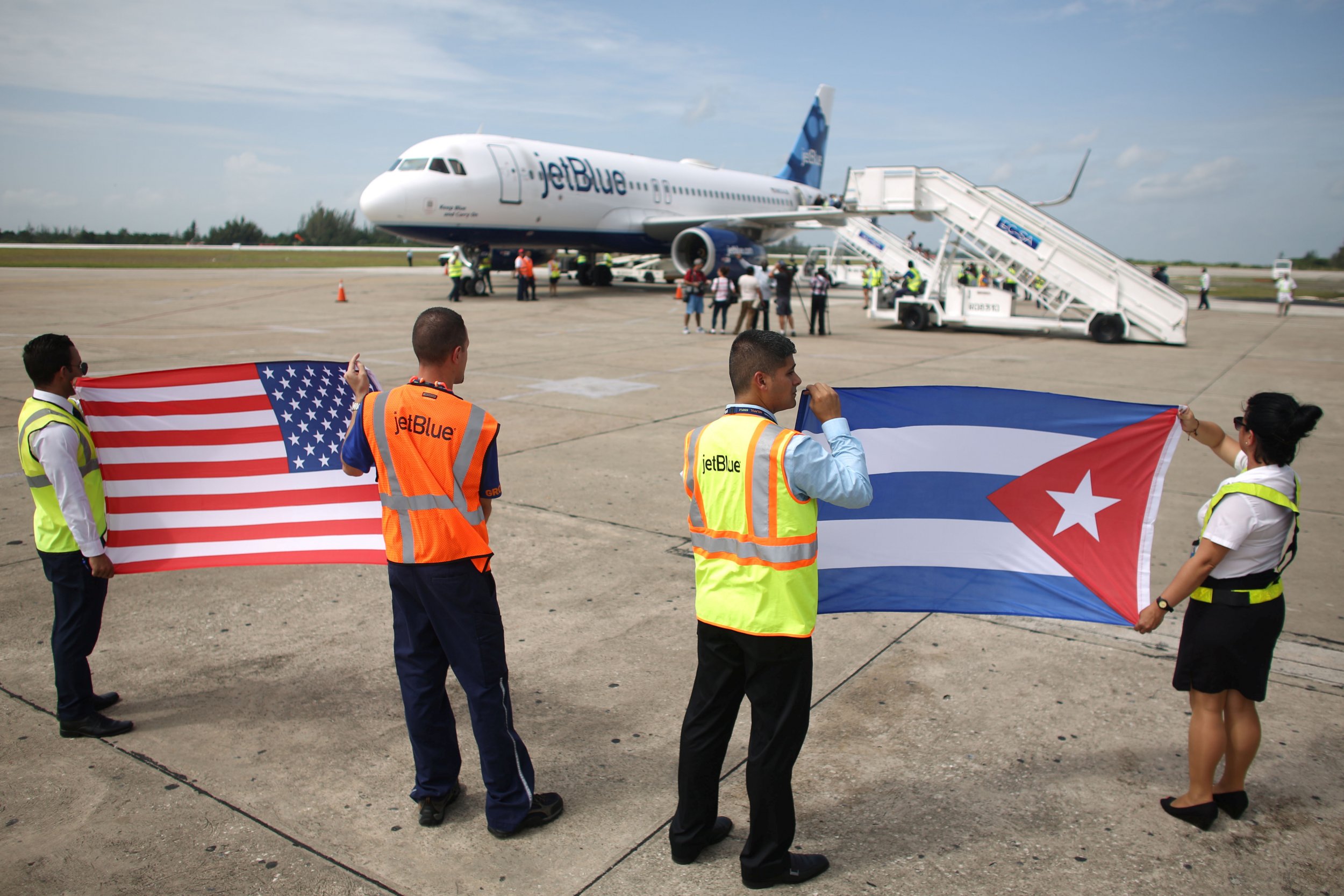
U.S. President Donald Trump is set to announce his new policy toward Cuba in a speech next Friday, according to U.S. officials. Speaking in Miami, Florida—a city home to the largest Cuban-American population—Trump is expected to accuse the island of human rights abuses and rollback some of his predecessor, Barack Obama's reforms.
Though it is not yet clear what the June 16 speech will say, sources familiar with the matter told Reuters that Trump will likely restrict rules on U.S. citizens traveling to Cuba and ban U.S. companies from doing business with Cuban entities linked to the island's powerful military.
Trump has long made his feelings toward Cuba clear. On November 26, when its former leader Fidel Castro passed away, Trump published the distinctly unpresidential tweet : "Fidel Castro is dead!" He later followed it with a statement that said: "Fidel Castro's legacy is one of firing squads, theft, unimaginable suffering, poverty and the denial of fundamental human rights." With Fidel's brother Raúl Castro still leading Cuba, Trump is expected to cite Cuba's human rights record as a reason for undoing part of Obama's detente.
Toward the end of his presidency, Obama championed better relations with the U.S.' former Cold War enemy. In 2014, he began easing trade and travel restrictions on the country and in March 2016, he became the first president since 1928 to visit the island nation.
In October, Trump—who considered opening a hotel in Cuba in March 2016—criticized Obama's attempts to repair relations with the country saying that they had resulted in a "very weak agreement." He was also forced to address a Newsweek article which said his business associates visited Cuba in 1998 in potential violation of the embargo.
Now president, such deals seem far from Trump's mind. In the coming days, he will receive his aides' recommendations about how to treat Havana ahead of the Miami speech. Amid lobbying attempts from pro-Cuban and anti-Cuban groups, Trump will need to consider whether he wants to make good on his campaign pledge to undo Obama's reforms or continue to allow Cuban-American business to happen. In a letter Friday, seven Republicans warned that isolating Cuba might push it toward countries like Russia and China.
Despite their plea, Trump might not listen. In February he had dinner with the U.S. Senator Marco Rubio, a Cuban-American who opposes Obama's policy on Cuba. As Reuters notes, Rubio sits on the Senate foreign relations and intelligence committees and is involved in the investigation into the Trump campaign's alleged links with Russia.
Uncommon Knowledge
Newsweek is committed to challenging conventional wisdom and finding connections in the search for common ground.
Newsweek is committed to challenging conventional wisdom and finding connections in the search for common ground.
About the writer
Mirren is a reporter for Newsweek International, covering terrorism, security and crime. She is also the producer and co-host of ... Read more





